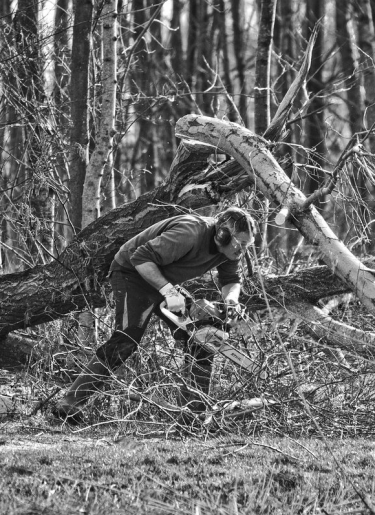
In a decision released on 18 May 2018, the Supreme Court of Canada upheld a decision of the British Columbia Court of Appeal concerning a site owner’s liability under the Occupational Health and Safety provisions of British Columbia’s Workers Compensation Act, following the death of a worker employed by a third party on the worksite.
The decision in West Fraser Mills Ltd. v British Columbia (Workers Compensation Appeal Tribunal), 2018 SCC 22, concerned a tree feller who was struck by a rotting fir tree and suffered fatal injuries. At the time of the incident, the worker was engaged in hazardous logging work in a location where West Fraser Mills Ltd. (‘West Fraser’) held a Forest licence. While West Fraser was the ‘owner’ of the worksite by virtue of the licence it held, it was not the employer of the worker, who worked for a contracting company on the land in question.
After investigating the incident, the Workers Compensation Board (‘WCB’) determined that West Fraser did not meet various obligations under s26.2(1) of British Columbia’s Occupational Health and Safety Regulation (the ‘OHS Regs’), which imposes certain safety requirements on owners of forestry workplaces. As a result of these breaches, an administrative penalty of CAD 75,000 (later reduced by 30%) was issued against West Fraser pursuant to s196(1) of British Columbia’s Workers Compensation Act (the ‘Act’).
The legal dispute at issue before the Supreme Court of Canada turned on the particular wording of s196(1) of the Act, which provides that:
‘The Board may, by order, impose on an employer an administrative penalty under this section if the Board is satisfied on a balance of probabilities that…’
On the basis West Fraser was the site owner and not the deceased worker’s employer, it argued that it could not be issued a penalty under s196.
West Fraser also challenged the ability of the WCB to enact s26.2(1) of the OHS Regs, on the basis that it impermissibly added to the obligations of a site owner beyond what was contemplated by the Legislature when it passed the Act.
The majority of the Supreme Court of Canada rejected both of West Fraser’s arguments.
In response to West Fraser’s challenge to the WCB’s authority to create regulations that add to the obligations of owners expressly set out in the Act, the Court reasoned that the Act gave WCB broad discretion to craft regulations related to occupational health and safety, and that s 26.2(1) was consistent with the mandate of the Act.
The Supreme Court also determined that the Tribunal’s interpretation of s196(1) as permitting an administrative penalty to be issued against any employer with a sufficient connection to the safety of the workplace, even when they are not acting in the position of an employer, was not patently unreasonable. In the Court’s view, West Fraser, while it was the owner of the licence, was also necessarily an ‘employer’ in relation to the worksite, even if it was not the employer of the worker in question.
The Supreme Court reasoned that West Fraser was required to, and did, employ an individual to monitor the worksite and ensure the duties imposed by the Act and OHS Regs were met, and thus was an ‘employer’ for the purposes of s196(1). West Fraser was therefore both ‘owner’ for the purposes of s26.2(1) of the OHS Reg and ‘employer’ for the purposes of s196(1) of the Act.
Of particular importance was the Supreme Court’s endorsement of the proposition that a site owner can be an ‘employer’ for the purposes of the Act by virtue of a relationship to the worksite itself, even in the absence of any direct employment relationship with those injured in a workplace accident.
As this decision was based on the unique wording of British Columbia’s workplace legislation, its impact in other jurisdictions will depend on the specific wording of each provincial statute. However, site owners across Canada should take note of this decision, as it signals increased potential liability on the horizon. Employers should ensure that any contractors working on their worksites are in compliance with all applicable safety standards in order to manage their risk in this area effectively.


